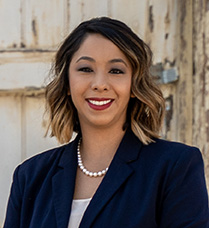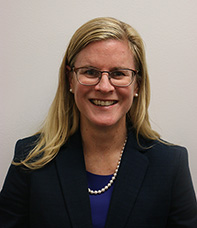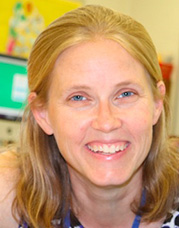Pandemic professional learning: adapting to change
For caregivers and educators of our youngest children, the COVID-19 pandemic has been a test of patience and strength like no other. Longstanding inequities in the field have been placed under a spotlight as the virus threatens to weaken the already brittle system of early care and education for our youngest learners. The professional learning goals of educators, administrators, coaches and facilitators have had to shift and adapt, as many of them refocus their efforts in order to protect children, families and prevent permanent closure of childcare homes and centers.
At WIDA Early Years, we saw firsthand the effects the pandemic has had on professionals who work closely with early childhood professionals. This fall, early childhood professionals from New Mexico, Maryland and Connecticut worked tirelessly to complete virtual professional learning workshops as part of the WIDA Early Years Professional Learning Cohort program. To shed light on how the pandemic has changed the course of their work in the field and affected their own professional learning experiences, this article highlights the perspectives and experiences of three Cohort participants.

Monica Kelly is a bilingual family and community engagement specialist from Roswell, New Mexico. In the beginning of 2020, she had plans to attend several out-of-state training events to learn more about strategies and supports to implement in her professional role — as well as to present the information she gained to local early childhood educators and families. Once the pandemic hit, however, most of those plans had to shift to a virtual format. “The original plan was to attend these trainings in person, but because that was no longer a possibility, I had to complete them virtually. This was difficult for me because, at times, I felt very disconnected from the facilitators and participants.” In spite of that, Monica was able to find some light in the midst of the change, as she confronted the unforeseen difficulties and devised new ways to support the professionals and families with whom she works. “I feel that being flexible and adaptable are great skills that I have learned from this year and I will continue to carry over into the future. Life is dynamic and so are our surroundings. I believe that in order for us to grow, personally and professionally, we must be pushed out of our comfort bubbles and placed into uncomfortable situations!”
Pre-K instructional coach and Maryland cohort participant Katie Fox, also adopted a Can Do lens as she considered the challenges presented by this year. “2020 has just highlighted what educators already do really well, and that is to be able to be flexible and adaptable…I think one of the most important pieces to note, though, is that despite it all, everyone is still working toward the same goal. We may have to shift our plans on a minute-to-minute basis, but we don’t have to shift our positive mindset. Asset-based thinking is a choice.” Katie maintains that lens as she supports educators who have been tasked with the difficult duties of ensuring that families have their basic needs met, like food and shelter, as well as access to internet service so that their children can participate in virtual learning. “Difficult times have highlighted the need for a strong community and the willingness for everyone to work together has never been stronger. There is no benefit to families when educators work in silos and the world has literally become the classroom.”

Meg Formica, an education coordinator at LEARN in Connecticut with 30 years of experience in the early childhood field, described the ways she has had to collaborate with professionals she works with to overcome some of the challenges the pandemic has posed. “When designing professional learning for ECE folks during the pandemic, I have been mindful that there is a range of access to technology — one person may be participating from a phone, not have a camera on their desktop, not be able to see multiple screens and documents…I have learned to be kind to myself when things go wrong — that it is ok to struggle! Many of the teachers and children and families we are seeking to support are struggling also. When we make mistakes, we are modeling the ability to self-correct and persevere — skills that help us succeed as lifelong learners.”
In addition to overcoming challenges related to proximity and technology, Meg notes some positive outcomes she will take from these months of social distanced professional learning. “The pandemic has created opportunities for collaboration. The CT WIDA Early Years Cohort are committed to continue to share ideas and collaborate around integrating the WIDA resources into their work. Seeing community ECE professionals share creative ideas with public school colleagues when they were tasked with developing reopening plans this fall was gratifying. Perhaps if ECE colleagues can come together to answer questions like how to help children wear masks, and reassure teachers and families fears about coming to school during a pandemic, we can figure out how to transition to universal preschool.”

Katie Fox also credits engagement in the WIDA Early Years eWorkshops with enhancing her practices of promoting support and inclusion of multilingual children and families during these months of necessary adaptation. When asked about any lessons learned from this tumultuous year, she states, “Relationships matter. The work I have done with WIDA Early Years over the last two years has emphasized that when you have a relationship with a family that you are serving or a colleague that you work with, those connections result in a more intentional, deeper experience for the young children we serve.”
Finding a path forward from this challenging time will prove difficult, but not impossible. How we react and move forward from this setback will be pivotal in our collective future. At WIDA Early Years, we are inspired and energized by the determination shown by professionals like Monica, Katie and Meg, as well as the many others whose paths we crossed this fall, as they have shown us that a better future is not only possible, but it is in the making. We can’t wait to build that better future together.
About the author
Stevie Alverson is a professional learning specialist with WIDA Early Years. Her work focuses on designing and facilitating professional learning opportunities for educators who work with young multilingual learners and their families.





